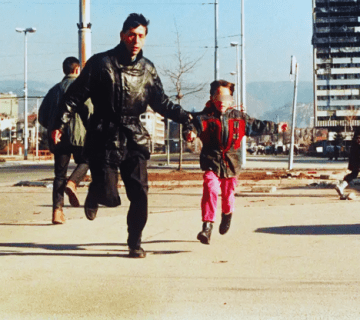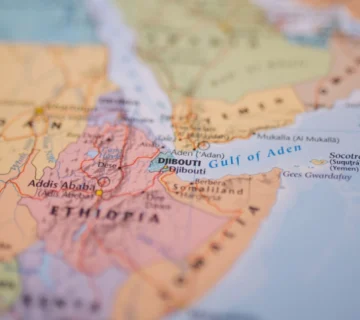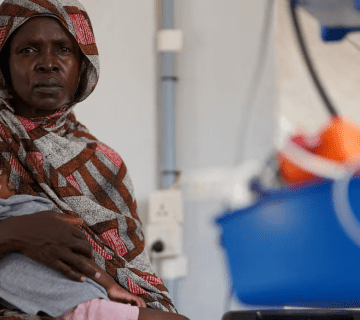When Samia Suluhu ascended to power in April 2021, it inspired hope and marked a symbolic step forward. Her act of lifting the ban on political rallies and releasing political prisoners further endeared her to the people of Tanzania. However, when she took the reins, her leadership merely reaffirmed the sobering reality of how democracy is too often practiced in Africa- where symbolic gestures frequently overshadow substantive democratic reform. The performance of democracy often takes precedence over its actual practice.
The definition of democracy is rule by the people. The Universal Declaration of Human Rights states that the will of the people shall be the basis of the authority of government. The will of the people is the source of legitimacy of sovereign states. The International Covenant on Civil and Political Rights lays down the legal basis for the principle of democracy in International law. It centralizes freedom of expression, the right of peaceful assembly and the right to freedom of association with others. Tanzania’s October 29th elections exposed cracks within the system. Human Rights Watch reported increasing repression leading up to the elections which inadvertently raised concerns about how free and fair the general elections would be.
A few months prior to the elections, Tundu Lissu, the leader of the opposition party, Chama Cha Demokrasia na Maendeleo (CHADEMA), was charged with treason after being arrested at a public rally in which he called for electoral reforms. Tundu was on trial for a charge that is both unbailable and carries the death penalty. In June, Tanzania’s electoral commission, The Independent National Electoral Commission (INEC), barred CHADEMA from elections and unable to offer candidates in the elections as well as in by-elections until 2030. CHADEMA’s political activities were fully suspended by the High Court. INEC also blocked the nomination of Luhaga Mpira, the presidential candidate of the opposition Alliance for Change and Democracy (ACT- Wazalendo). This was a tactical move by the government to crack down on the opposition in a bid to ascertain their win in the elections. In May, prominent opposition party activist, Mdude Nyagali, was abducted by unidentified individuals from his residence. The government withdrew the registration of one of the largest Pentecostal churches in the country after it’s founder, Josephat Gwajima, a parliament member of the ruling party, Chama Cha Mapinduzi (CCM), spoke out against increasing abductions and other human rights violations. Police responded to the rising number of disappearances by releasing a statement naming individuals they claimed had orchestrated their own kidnappings. Notably, the list omitted high-profile cases involving opposition and civil society actors, further deepening concerns about the credibility and impartiality of state investigations. Ironically, Suluhu’s government pledged at the UN Human Rights Council to uphold human rights and democratic principles throughout the election period on the same month. Human Rights Watch documented multiple cases of politically motivated assault, harassment, abduction and torture, and the impact of extensive restriction on traditional and social media. There were also reports of thousands of voters in Zanzibar who were unable to get identity cards required for voter registration. In Tanzania, as in much of the continent, the ballot box often symbolizes choice without change- a ritual reaffirming authority rather than redistributing it.
On election day, disillusioned Tanzanians took to the street to protest the blatant subversion of democracy, alleging widespread electoral fraud and the silencing of opposition voices. Within hours, soldiers were deployed on the streets, opening fire and killing over 1000 people, according to CHADEMA and rights activists. A curfew was subsequently declared on the voting day and internet cut across the country, leading to a five-day blackout. These targeted and indiscriminate killings are a reflection of the deepening authoritarianism that continues to erode Tanzania’s democratic fabric.
Instruments such as the Constitution, intended to safeguard democratic ideals, are instead being weaponized to legitimize and reinforce authoritarian control. Under the Tanzanian Constitution, the Presidential election results are final and immune to judicial review. Additionally, Tanzania’s constitution in Article 74 provides for the president to appoint as well as dismiss electoral commission members, including the chairperson and vice chairperson. This cements the fact that the elections are a performance orchestrated to emulate democracy except the outcome is decided before the curtain even raises. Simply holding elections is not the point. Participation without genuine choice is merely ritual, not representation.
After the elections, The AU observer mission cited ballot stuffing, the participation of foreigners in voting and an uneven playing field that disadvantaged opposition parties, notably Chama Cha Demokrasia na Maendeleo (CHADEMA) and Alliance for Change and Democracy (ACT- Wazalendo). Tanzania is home to 68 million people and this figure is projected to double by 2050. As the continent’s youthful population grows, so does the urgency to strengthen institutions that serve rather than suppress. Now more than ever, it is vital that African Institutions assert themselves as true watchdogs of democracy. Gone are the days when we could depend on external entities to safeguard our political integrity. It is time that Africans reclaim agency and build societies where the people truly have a voice. Where democracy is no longer a performance for legitimacy, but a lived reality rooted in accountability, transparency, and the will of the people.
Photo Credits: Getty Images
Ivy Ndung’u is a Research Intern at the HORN Institute.



